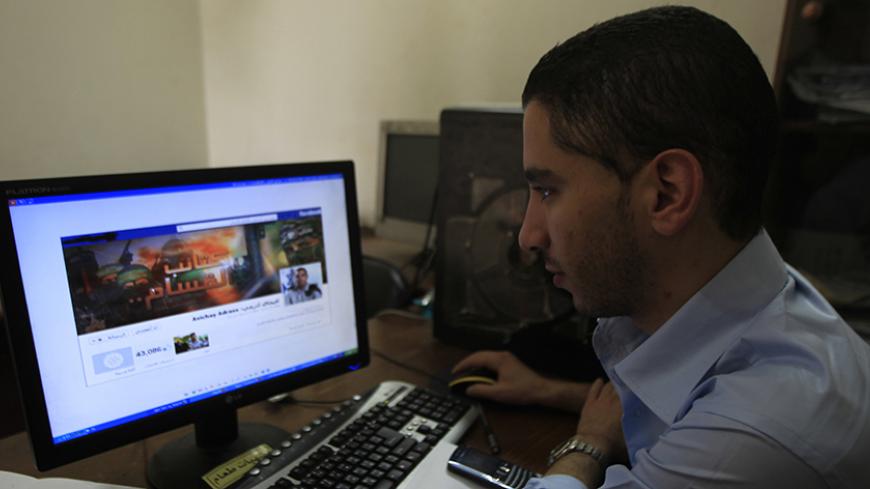Palestinian President Mahmoud Abbas recently approved a law to battle cybercrime in the West Bank, but some journalists and citizens worry ulterior motives might be involved.
The version of the bill Abbas signed June 24 isn't the one journalists and the public were expecting, said Nabhan Khreisheh, a member of the Union of Palestinian Journalists' General Secretariat. He told Al-Quds Al-Arabi newspaper June 27 that the law is a "retrograde step" designed to intimidate Palestinians and keep them from criticizing the political system.



